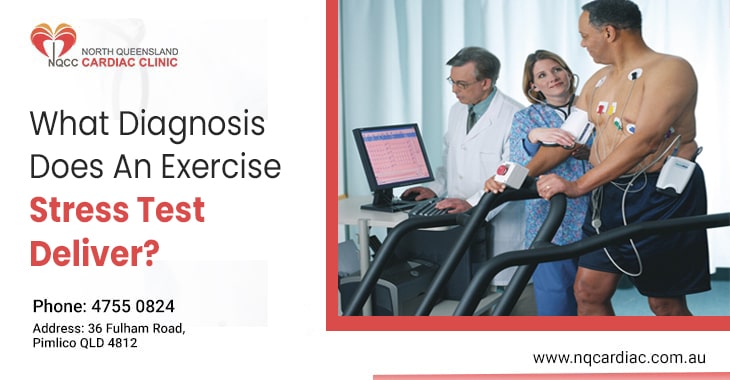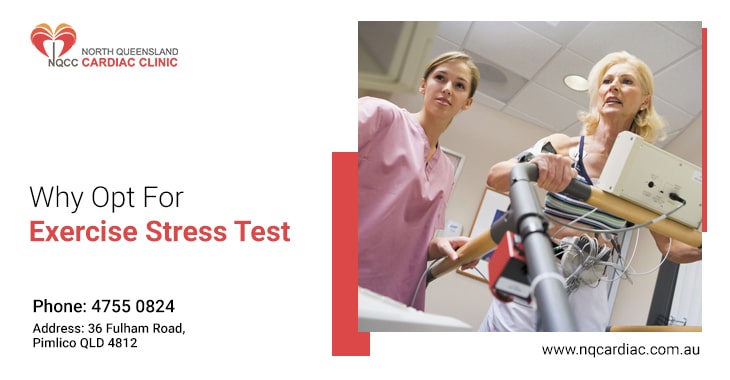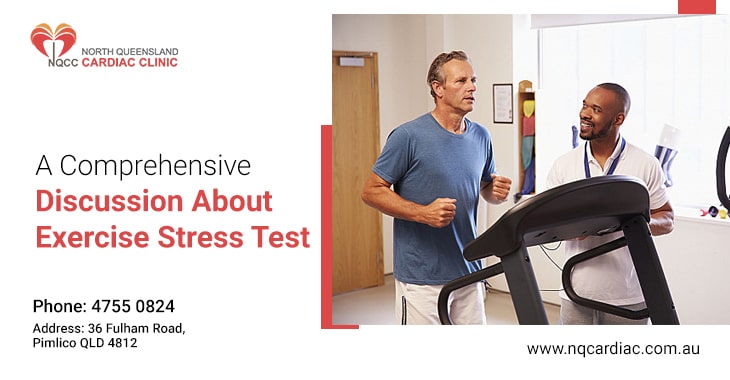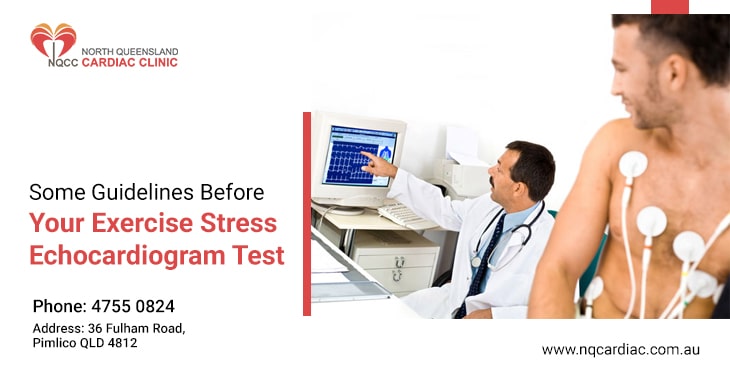The North Queensland Cardiac Clinic (NQCC) stands as a beacon of hope for individuals seeking comprehensive cardiac evaluations, where excellence in cardiac care meets compassion. Led by the esteemed Dr Dharmesh Anand and Dr Raibhan Yadav, NQCC has established itself as the Best Exercise Stress Test Clinic In Pimlico. The Exercise Stress Test, often referred to as a treadmill test, is a non-invasive diagnostic tool employed to evaluate the performance and overall health of the heart. Today, we delve into the intricacies of an Exercise Stress Test and uncover the invaluable diagnostic insights it delivers.
- Detecting Coronary Artery Disease (CAD)
- Assessing Heart Rhythm Abnormalities
- Evaluating Exercise Tolerance
- Uncovering Silent Ischemia
- Assessing the Effectiveness of Medications
- Gauging Overall Cardiovascular Health
- Enhancing Risk Stratification
Detecting Coronary Artery Disease (CAD):
CAD is when the arteries supplying blood to the heart narrow down or get blocked due to plaque buildup. During an Exercise Stress Test, if a patient experiences chest pain (angina) or significant ECG changes, it may indicate a reduced blood supply to the heart muscle. This can be a strong indicator of CAD, prompting further evaluation and treatment.
Assessing Heart Rhythm Abnormalities:
An irregular heartbeat arrhythmia can disrupt the heart’s normal pumping function. Exercise Stress Tests help identify such rhythm abnormalities. For example, if the ECG shows irregularities like tachycardia (fast heartbeat) or bradycardia (slow heartbeat) during exercise, it can indicate arrhythmias requiring specialised management.
Evaluating Exercise Tolerance:
The test measures how well the heart can handle increased demands during physical activity. A reduced exercise capacity can signify various heart conditions, including heart failure. Monitoring a patient’s ability to tolerate exercise provides valuable information for treatment planning and heart disease progression.
Uncovering Silent Ischemia:
Sometimes, patients may not exhibit symptoms at rest but could develop ischemia (inadequate blood supply) during exercise. An Exercise Stress Test can reveal “silent ischemia,” which is critical in identifying individuals at risk of heart events and guiding treatment decisions.
Assessing the Effectiveness of Medications:
For patients with known heart conditions, an Exercise Stress Test can be used to evaluate the effectiveness of medications in controlling symptoms and improving exercise tolerance. This allows healthcare providers to fine-tune treatment plans for optimal results.
Gauging Overall Cardiovascular Health:
Beyond specific diagnoses, an Exercise Stress Test offers a comprehensive view of an individual’s cardiovascular health. It can help assess the risk of heart disease, guide lifestyle modifications, and tailor preventive strategies.
Enhancing Risk Stratification:
By combining Exercise Stress Test results with other diagnostic information, healthcare providers can better stratify patients into low, intermediate, or high-risk categories for future cardiovascular events. This aids in personalised care planning and preventive measures.
Final Words
The Exercise Stress Test is not merely a routine examination but a powerful diagnostic tool capable of uncovering a range of heart-related conditions. At the North Queensland Cardiac Clinic (NQCC), the Best Exercise Stress Test Clinic In Pimlico, under the expert guidance of Dr Dharmesh Anand and Dr Raibhan Yadav, we understand the significance of this test in early detection and prevention.
We are committed to providing our patients with the highest quality cardiac care by offering premium exercise stress test services. Remember, when it comes to heart matters, early detection is key. Visit NQCC today and let us help you take a proactive step towards a healthier heart and a brighter future. Your heart deserves nothing less than the best.





Recent Comments